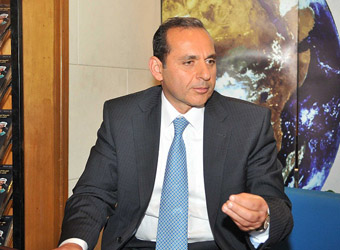Despite the fact that the deposed Mohamed Morsi’s regime had conducted cabinet reshuffle and changed the governors; a chairman of the National Bank of Egypt (NBE) had not been chosen yet since the departure of Tarek Amer last February.
Hisham Ramez, Central Bank of Egypt’s (CBE) governor stated that he had suggested nominees to the Egyptian authorities but he did not receive any reply up till now.
Consequently, this issue has increased doubts about Muslim Brotherhood’s deliberate intention to intervene in the designation of banks’ leaders, especially that NBE is one of the biggest banks in the Egyptian market. NBE also possesses a number of the finest banking cadres which can lead the bank during the upcoming period such as Hisham Okasha and Sherif Elwy – NBE’s deputies chairman; as well as Mahmoud Montasser – the member of the board of directors and head of credit sector at the bank.
The sources had confirmed that Hisham Okasha was too close to the NBE’s presidency, but the officials rejected due to political orientations differences, so Mosri’s regime intended to appoint someone else.
In general, the deposition of Morsi postponed the designation of new president although it is in favor of Hisham Okasha.
National Bank of Egypt (NBE) is the oldest commercial bank in Egypt. It had been established on June 25, 1898 with a capital of £ 1 million. Throughout its long history, NBE’s functions and roles have continually developed to square with the different economic and political phases in Egypt. During the 1950s, NBE assumed the central bank’s duties. After its nationalization in the 1960s, it acted as a pure commercial bank besides carrying out the functions of the central bank in the areas where the latter had no branches. Moreover, since mid-1960s, NBE has been in charge of issuing and managing saving certificates on behalf of the government.
